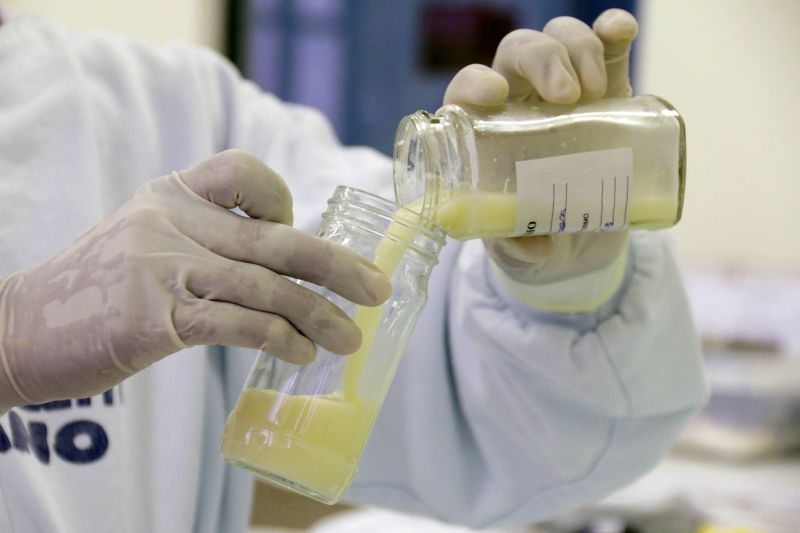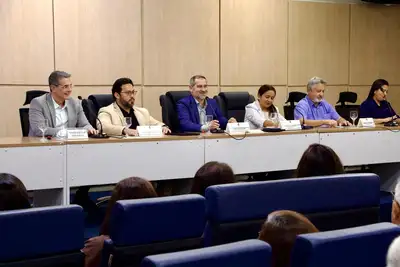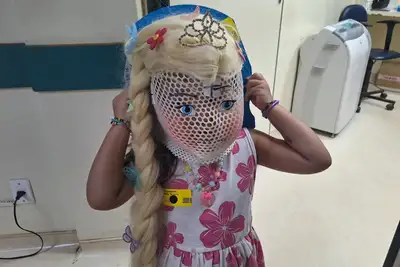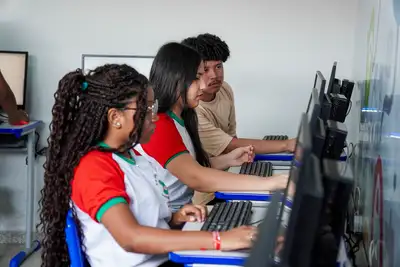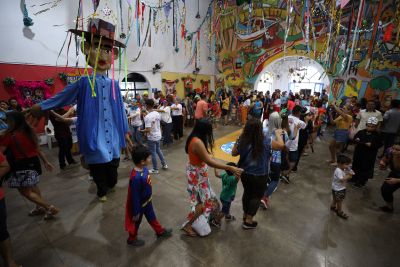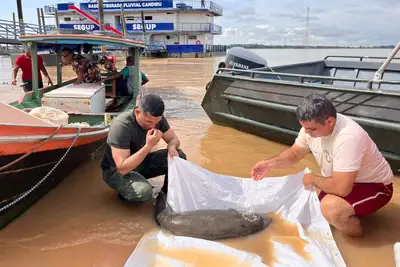Sespa strengthens 'life chain' with actions to encourage breastfeeding
The program will highlight, among other themes, the construction of sustainable support systems and networks for early childhood
With the theme "In the life chain, breast milk is root, river, and future," the "Golden August" campaign of 2025, organized by the State Department of Public Health (Sespa) and partners, continues with seminars and actions until this Sunday (31), emphasizing the importance of exclusive breastfeeding during the first six months of a child's life.
On Tuesday (26), from 8 am to 12 pm, the scientific seminar "Support Systems and Sustainability in Breastfeeding" will be held at the auditorium of the Center for Studies and Training in Health (Cets), of the Santa Casa de Misericórdia do Pará Foundation, in Belém. It will also be broadcast online via Google Meet, at the link: https://meet.google.com/kqy-dmyv-tpd.
The program will highlight, among other themes, "Let’s prioritize breastfeeding: building sustainable support systems," which will be addressed remotely by the general coordinator of Child, Adolescent, and Youth Health Care at the Ministry of Health (MS), Sônia Venâncio, focusing on Public Policies for Breastfeeding and the Alyne Network.
On Wednesday (2), from 8 am to 12 pm, also at the Cets auditorium, there will be an intersectoral meeting of institutions, with the theme "Connecting support networks for early childhood in the territory." On this occasion, pediatrician and state coordinator of Child Health, Ana Cristina Guzzo, will address the legal protection of breastfeeding as a strategy to reduce infant mortality. Following that, the overview of prescriptions for special nutrition formulas will be the topic of the lecture given by nutritionist Walkiria Moraes, state coordinator of Nutrition.
On Saturday (30), between 8 am and 12 pm, the "Golden August" campaign continues at the Usina da Paz da Terra Firme and at the Usina da Paz da Cabanagem, both in Belém. Medical and pediatric consultations will be offered; nursing screening; rapid tests and counseling; nutritional assessment; vaccination; men's health and scheduling of women's health for mammography and PCCU (cervical cancer screening).
Closing - On Sunday (31), a program at Praça da República, in Belém, will conclude the campaign with the same services offered at the two UsiPaz, in addition to performances by the Santa Casa choir and the Arraial do Pavulagem.
In these external actions, the population can bring glass jars (from instant coffee, with a plastic and screw cap), which will be donated to the Human Milk Bank of Santa Casa de Misericórdia. These items are used in the collection, processing, and storage of milk that feeds premature babies in the hospital's ICUs.
Golden August - Inspired by the concept of the "Golden Hour," which represents the first hour of life of the newborn with the mother, "Golden August" symbolizes the month of awareness about the importance of breastfeeding. Immediate contact after birth, skin to skin, stimulates the bond between mother and baby, favors the release of oxytocin — a hormone essential for milk let-down — and increases the chances of successful breastfeeding.
Studies reinforce that this initial contact helps the baby find the breast, recognizing the mother's scent and familiar sounds from gestation. The practice is recommended even for clinically stable cesarean and premature births.
According to Ana Cristina Guzzo, breast milk is considered the most complete food for the baby, as it contains all the necessary nutrients for the child's best development, reducing the occurrence of diarrhea and infections, which are causes of death in children under 5 years old, while also providing numerous health benefits to women, such as reducing the chances of developing breast and uterine cancer.
The recommendation from the World Health Organization (WHO) and the Ministry of Health is that babies receive exclusively breast milk during the first six months of life. It is estimated that breastfeeding can reduce the mortality of children under 5 years old worldwide from preventable causes by up to 13%. No other isolated strategy achieves the impact that breastfeeding has on reducing deaths in this age group.


